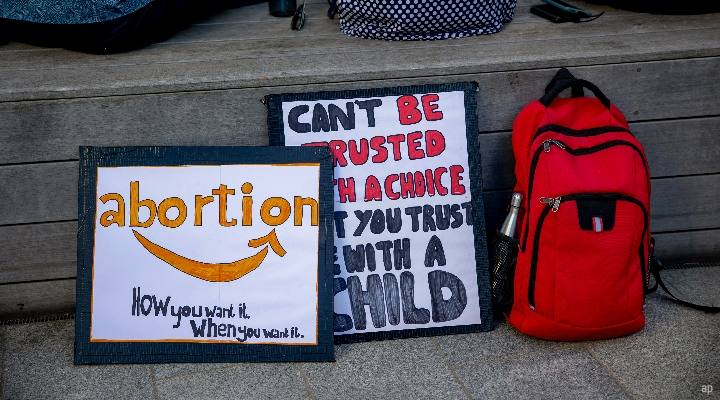
When companies released social media statements about female empowerment for International Women’s Day this year, a Twitter account called the "Gender Pay Gap Bot" was ready to call out the ones that weren’t walking the walk.
For each tweet celebrating the achievements and value of a company’s female employees, the bot responded with a return tweet detailing the respective firm’s publicly available gender pay gap data. A follow-up project also revealed how quickly each firm had deleted its original tweet.
While amusing, this series of events put a spotlight on the issue of "social washing" —a practice in which companies make misleading, exaggerated, or unsubstantiated claims about the management of social risk or social issues.
What Is Social Washing?
Social washing, like the better-known greenwashing, occurs when there is a disconnect between perceived commitments to social issues and genuine action.
The practice can come in the form of brand activism or corporate statements about a wide range of social issues including diversity, equity and inclusion; labor standards; racial justice; human rights; product safety; and data privacy.
In the US, comedian Bo Burnham sent up such statements in a skit poking fun at corporate engagement videos. "The question is no longer 'do you want to buy Wheat Thins, for example, the question is now 'will you support Wheat Thins in the fight against lyme disease.'"
Making these statements without taking concrete action may mask poor management of social risks, which could create valuation risk for companies or mislead impact-oriented investors who prioritise management of social issues in their investment decisions.
What’s behind the rise in social washing? Simply, internal and external stakeholders are placing increasing importance on the management of social issues, and companies are being forced to address shortfalls — or at least pay lip service to causes.
This pressure is illustrated by:
- an increase in shareholder proposals and company disclosures related to social risk,;
- regulatory and advisory bodies like the United Nations Principles for Responsible Investing raising the profile of social issues;
- younger generations prioritizing social issues when choosing an employer; and
- consumers considering a company’s stance on social issues when buying things.
While it is difficult to pinpoint the catalyst for heightened awareness, we expect the culmination of several events in recent years has brought social risk into sharper focus: for instance, the coronavirus pandemic, the Black Lives Matter movement, and a degradation of reproductive rights in the United States.
What Does Social Washing Look Like in Practice?
Brand activism is a high-profile form of social washing commonly deployed by consumer-facing companies, and there are a great many examples of the practice backfiring when consumers uncover companies’ thinly-veiled attempts to profit from social causes.
As noted by the Guardian, these include:
- Grocery store Marks & Spencer selling an "LGBT sandwich" in the United Kingdom during Pride Month celebrations, but refraining from selling the product in markets where same-sex relations are illegal.
- Audi running a Super Bowl campaign promoting gender equality, despite having low female representation in management and, at the time, no female board members.
Simultaneously, companies are also increasingly expected to react and take a stand on high-profile social issues while juggling conflicting interests of stakeholders. Inevitably, this means alienating certain groups while appeasing others.
A recent example of this is companies like Citigroup and Lyft publicising support for employees seeking abortion healthcare in a post-Roe v. Wade world. These stances appeased pro-abortion-rights employees, but led to anti-abortion-rights activists and conservative lawmakers retorting with legal threats.
Even when companies heed to social pressure and act, there can be negative financial consequences, as seen with major apparel companies like H&M, Nike, and Adidas. These companies suffered falling sales in China as consumers boycotted Western brands after the firms altered their sourcing strategy to avoid Xinxiang on concerns regarding forced labour among the Uyghur population.
However, remaining silent on social issues is also a risky strategy.
This was illustrated by Disney’s decision to initially not denounce Florida’s Parental Rights in Education bill, more commonly known as the "Don’t Say Gay" bill, which aimed to limit discussions of sexual orientation and gender identity in schools.
Disney employees expressed outrage, as did members of the LGBTQ+ community, with whom Disney has built a profitable relationship. Disney quickly reversed its stance, and pledged a $5 million donation to organisations supporting LGBTQ+ rights, signed the Human Rights Campaign statement opposing such legislative efforts in other US states, and paused political donations in Florida, irritating Republican supporters. The company had previously donated to politicians who sponsored the bill.
While it is too soon to determine whether this mixed messaging will have a negative financial impact on Disney, including through higher employee turnover, the magnitude of the pledged donation is largely tokenistic, relative to the company’s c.$2 billion fiscal 2021 net income.
Nonetheless, poorly crafted communication can lead to backlash from both sides of a debate, as seen with Coca-Cola, which initially withheld from taking a public stance on the state of Georgia’s voting laws, but later denounced the legislation after it passed, resulting in rotating boycotts and reputational damage.
Finally, social washing is most routinely observed in vague, lofty corporate statements included in company fillings, like annual or corporate social responsibility reports or, as mentioned above, via social media.
Social Washing Can Disguise or Elevate Risk
Social washing practices may result in social risks being poorly managed or even elevated.
Brand activism blunders or backlash from a company taking a stand have proved to be immaterial to a company’s valuation in isolation.
However, poorly-managed social risks masked by unsubstantiated claims are likely more meaningful. For instance, if companies deflect attention from weak labor relations or a lack of adequate DEI practices with exaggerated claims and no action, they risk rising operational costs, falling productivity, and higher turnover.
In the future, we also expect companies involved in social washing to be exposed to regulatory fines by consumer advocacy bodies cracking down on false or misleading advertising, as has recently occurred with greenwashing for consumer goods.
Nevertheless, a more immediate concern is that when corporate commitments prove unsubstantiated, companies risk reputational damage and difficulty attracting and retaining both customers and employees.
For example, as noted by the Harvard Business review, employees are growing increasingly disillusioned and outraged at the disconnect between calls for racial justice with no substantial action to support the cause and are empowered to highlight the hypocrisy.
Social media also elevates this risk, since opinions—good or bad—are amplified across the internet, and companies making shallow or unsubstantiated claims risk being exposed in a public arena very quickly.
Take Starbucks, which has a reputation as a socially progressive employer with generous employee benefits and support for liberal-leaning social causes. It has also been linked to union-busting activities—and employees took to social media to call out the company.
Data is Key
To uncover social washing and assess whether social risks are being appropriately managed, investors must push for greater data disclosure.
However, unlike environmental risk, which has a well-established framework and comparable metrics like carbon emissions, measuring social risk is a still- evolving field.
Data related to social risks (particularly diversity data, which can include employees’ race or ethnicity, gender identity, sexuality, and disability status) is typically gathered through self-identification and voluntary disclosure, and collection is outlawed in certain regions under privacy legislation.
As a result, the data available is often measured and reported inconsistently, is often qualitative and localised, and is difficult to compare among organisations.
There’s currently a patchwork of legislation and disclosure rules that guide behaviour and regulate policies, recordkeeping, reporting, and board representation. These include the mandatory gender pay gap disclosure by British companies with more than 250 employees, certain Canadian companies having to disclose diversity policies and practices for the board and senior management, and the Nasdaq Stock Exchange requiring listed companies to disclose board diversity data.
We’re hopeful there will be more regulatory progress to standardise such data in the future. But in the absence of a comprehensive dataset, there are a few things investors can do to assess companies’ commitments:
- Look to an assortment of company disclosures, third-party data, and frameworks to assess the management of social issues. This includes guidelines from bodies such as the PRI, the International Capital Market Association’s Social Bond Principles for impact-oriented investors, and ESG Risk Ratings from Morningstar Sustainalytics;
- Push for greater disclosure via shareholder proposals. This includes voting in favour of racial equity audits, which provide an independent assessment of a company’s efforts to address racism. Following the Black Lives Matter movement, these proposals became increasingly prevalent as a way to assess both a company’s progress against publicized commitments for racial justice, and how the company’s current operations could be contributing to systematic racism. They’ve received majority shareholder support at major companies including JP Morgan Chase, Johnson & Johnson, and Amazon.com;
- Evaluate companies’ political donations to determine whether their money really is where their mouth is. For instance, as highlighted by Responsible Investor, several large corporations that publicised support for the reproductive freedoms of female employees like CVS Health, Citigroup, and Amazon, or have publicised the empowerment of women as a core value, such as AT&T, were also top donors to politicians who were instrumental in overturning Roe v. Wade. While it is difficult to pinpoint political donations to a particular cause, investors can use such donation data to assess potential disconnects.
Assuming data disclosure improves with regulatory and market pressure, the next frontier is to understand how to analyse social risk data itself.
We expect with greater visibility, investors will be able to more concretely tie social risk to valuation impact. They’ll also be able to use frameworks like the United Nations Sustainable Development Goals to develop thresholds for appropriate social risk management.
Emma Williams is an ESG equity analyst at Morningstar










:quality(80)/cloudfront-us-east-1.images.arcpublishing.com/morningstar/6BCTH5O2DVGYHBA4UDPCFNXA7M.png)





















